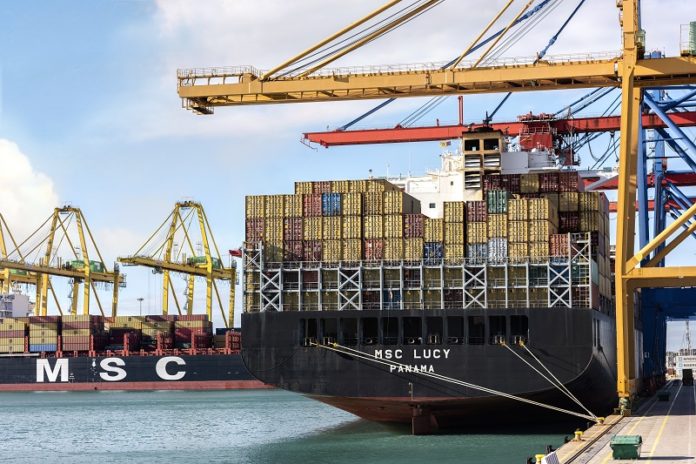Mediterranean Shipping Company (MSC) has extended its capacity lead over Maersk Line, 1.5 years after surpassing its Danish rival as the largest liner operator.
Following aggressive newbuilding orders, long-term vessel charters and acquisitions of secondhand vessels, MSC’s fleet now stands at around 5.13 million TEUs, nearly 1 million TEUs more than Maersk Line’s 4.14 million TEUs.
In its report, Alphaliner said that on average, MSC’s lead over Maersk has grown by a whopping 12,800 TEU every week since January 2022.
Orderbook projections suggest that MSC will further expand its lead at the top of the mainline operators’ league over the rest of 2023.
Currently, the Swiss-Italian carrier is one of the main drivers of overall fleet growth.
Encouraged by the Covid-19-induced boom, the overordering of container ships in 2021 and 2022 is beginning to manifest itself in ever-increasing tonnage deliveries, with June setting a record for deliveries in a single month. Of the 277,873 TEU delivered in June, MSC alone accounted for 39% of this at 111,474 TEU, including two 24,000 TEU ships and five 15,000-16,000 TEU ships.
Alphaliner noted that MSC has steadily expanded both fleet and network since the company was established in 1970, but the carrier’s growth has accelerated notably in the late 2010s and it went into overdrive in 2020, when Covid-19-related logistical bottlenecks pushed freight rates to historical highs.
Alphaliner said, “Not only does MSC have the largest vessel orderbook (1.5 million TEUs) of all carriers, but it also acquired far more secondhand vessels than any other shipping line. MSC bought well over 300 ships in the last three years. About two-thirds of this capacity came as a net addition to MSC’s fleet.”
Newbuilding deliveries are expected to remain high in 2023 and 2024, fuelled by an orderbook of 7.6 million TEUs – or 28.5% of the existing fleet.
Alphaliner continued, “Although new environmental regulations have created some ’artificial’ tonnage demand though mandated slow-steaming, cargo volumes will most certainly not grow enough to absorb all of these new ships. Alphaliner therefore believes that large chunks of today’s vessel newbuilding pipeline will be for fleet renewal, rather than fleet growth.”
Martina Li
Asia Correspondent







